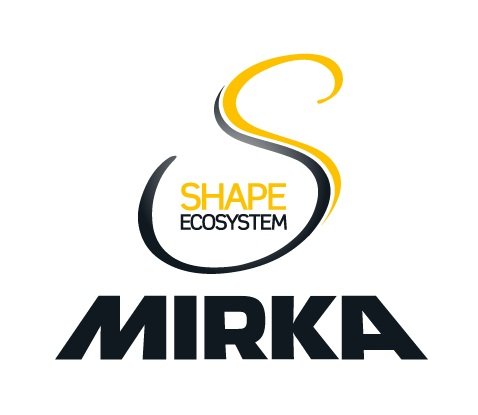Intelligence Throughout Value Chains with Mika Adler
Mika Adler leads the SHAPE R&D theme "Intelligence throughout value chains". This theme aims to create more sustainable manufacturing processes and optimize associated value chains through the intelligent utilization of data, analytics, AI, and ML. This will enable traceability in assessing carbon footprints and handprints based on real data and boost sustainable manufacturing.
Mika Adler
Mika Adler is a Development engineer at Mirka.
His background in chemical engineering sparked a fascination for how data can be used to simulate production, automate manufacturing, and enhance sustainable processes.
The primary objective in this R&D theme is to measure and model the net impact of value chains and establish an IoT-centric data-driven model to evaluate the carbon footprints and handprints of manufacturing. This enables designing processes that yield net carbon-negative surfaces. Using artificial intelligence (AI) and machine learning (ML) are integral parts of achieving the objectives.
Understanding and using data is an essential part in all the SHAPE Ecosystem R&D themes, so Mika’s theme strongly supports the others.
“It’s crucial to evaluate the environmental impact of manufacturing through precise measurements along the product lifecycle”, Mika says.
Numerical assessment of emissions, for instance, helps to set goals and translate them into measurable outcomes.
“Being able to define net-negative and carbon-negative outcomes benefits not only Mirka, but also empowers customers using our products to achieve their sustainability milestones in carbon neutrality”, he explains.
There are several objectives to be explored in the "Intelligence throughout value chains" theme:
• Data-driven sustainability management: Fair evaluation of CO2 emissions and impact. This theme will also address how reuse extends the product lifespan, since surface interactions are an essential area of expertise and interest for Mirka.
• How robotics and automation can impact employee tasks and wellbeing. Mirka is interested in developing a workplace health index as it is currently missing.
• Automation and reporting are also to be addressed. Mirka is interested in machine learning modelling, particularly in production processes. For data modelling, digital twins could be formed for process parts, and simulations could help in the efficient execution of processes.
• Smart Factories present novel challenges, which prompt factory evolution.
• Anticipated EU regulations add to the complexity of the matter. As an example, the Digital Passport for product traceability is an area Mirka closely follows to comply with future standards.
Mirka already has a strong understanding of its value chain, but because the use of Mirka's products generates waste, such as dust and disposable abrasives, the products need to be aligned with circularity. Therefore, SHAPE Ecosystem welcomes partners with expertise in waste utilization and recycling while Mirka has top-notch expertise in surface interactions, bringing valuable input to the ecosystem.
In this data-driven R&D theme, several partners are sought after, ranging from mechatronics, data utilization, sensor manufacturing, and software development. SHAPE welcomes universities and vocational schools alike, as well as companies able to run demos and develop marketable solutions. This kind of collaboration spans the whole value chain, leading to more sustainable manufacturing.
Mika is delighted to see the first data-driven projects already being launched. Among the first projects is the DDSM project with Åbo Akademi University, which uses machine learning, incorporating physical and data-based learning.

